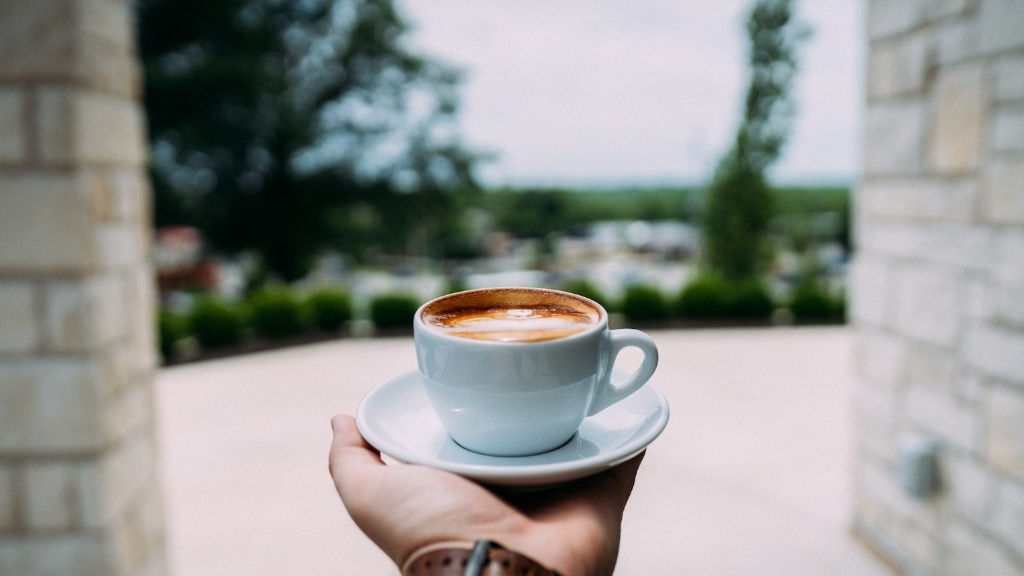Drinking coffee when sick is an often debated topic in the medical world. Though the consumption of coffee has seen increased attention from the medical experts in recent years, it is still unclear whether drinking coffee when sick is beneficial or detrimental to a patient’s health.
Coffee is a widely consumed beverage, which contains caffeine and numerous other compounds that are known for their antioxidant properties. Caffeine is an alkaloid, a stimulant of the central nervous system, that can also affect the cardiac, respiratory, and digestive systems. The average cup of coffee contains 95-200mg of caffeine, which can induce feelings of alertness and energy. From the perspective of the human body, caffeine is often perceived as a stimulant.
However, while the stimulatory effects of caffeine may be beneficial in certain situations, whether drinking coffee when sick is a good idea is still a matter of debate. Generally speaking, the consensus is that drinking coffee while sick is usually not a good idea, as it may increase the body’s stress response and exacerbate the symptoms of an illness. Some experts advise that those who are sick should avoid drinking coffee, as it can have the opposite effect of the desired outcome, making them feel more tired and sluggish.
Moreover, it is important to note that coffee can have a diuretic effect, potentially leading to dehydration. This can be detrimental for someone who is already affected by an illness, as it can lead to additional complications. Additionally, coffee acidity can cause further disruption to the body’s already weakened digestive system, leading to increased nausea and digestive discomfort.
Additionally, it is important to note that some illnesses require an individual to drink fluids in order to replenish fluids lost due to sweating, vomiting, and diarrhea. Therefore, drinking coffee when sick could be counterintuitive, as coffee is an inherently dehydrating beverage.
Ultimately, it is best for the individual to make an informed decision about whether or not to drink coffee when sick. It is important to remember that coffee should be consumed in moderation, if at all, during an illness in order to avoid potentially serious health issues.
Sleep Patterns
When it comes to coffee and sickness, it is equally as important to be aware of the effects coffee might have on sleeping patterns. It is a generally known fact that coffee contains caffeine, and caffeine is a stimulant. Meaning it can disrupt an individual’s circadian rhythm and make it more difficult to sleep, which can worsen sickness symptoms. Caffeine can stay in an individual’s system for up to 12 hours, which can become a problem if consumed late at night.
Having a disrupted circadian rhythm can cause an individual to become drowsy during the day and unable to sleep when needed. A lack of sleep can also weaken an individual’s immune system, making them more susceptible to getting sick. Furthermore, a lack of sleep has been linked to an increased risk of developing chronic health conditions such as heart disease, diabetes, high blood pressure, and others.
These health risks should be taken into consideration when determining whether or not to drink coffee. It may be best for an individual to avoid coffee or limit their consumption of the beverage during the late evening hours.
Coffee Alternatives
For individuals dealing with an illness who want to avoid drinking coffee, there are a few alternatives they can turn to. For example, there are herbal tea blends like chamomile, ginger, and peppermint which may provide the same soothing effects as coffee without the negative side-effects. These drinks are typically caffeine-free and may even contain medicinal benefits.
Additionally, there are various decaffeinated coffees that are widely available. Though the drinks still contain small amounts of caffeine, the presence of the compound should be minimal enough to not effect sleep patterns or spike an individual’s stress levels.
For those looking for an alternative with a kick, there is yerba mate, an herbal tea from South America that contains stimulant levels similar to that of coffee but is free of the negative side-effects. Additionally, there is green tea, which contains small amounts of caffeine but is packed with antioxidants that may help improve the body’s immunity and overall health.
Supplementing Health
In addition to providing energy, some experts believe that coffee can provide a beneficial boost to an individual’s health. Recent studies have linked coffee consumption to a reduced risk of some diseases, such as cardiovascular disease, diabetes, and neurological diseases. Furthermore, some experts suggest that coffee may even be beneficial in combating certain types of cancer.
Though the evidence is not definitive, some experts suggest that coffee can be used as a supplement to an individual’s overall health. It should be noted, however, that these findings are preliminary and should not be taken as fact.
Furthermore, it is important to note that drinking coffee when sick should be done in moderation. Too much coffee can have a negative effect on the body and should be avoided, unless you have consulted your general practitioner and have been given the green light.
Tips for Drinking Coffee
For those looking to incorporate coffee into their lives, there are a few tips that should be followed. The first is to drink in moderation; the National Institute of Health suggests limiting the amount of coffee consumed to no more than 400mg of caffeine, or approximately three 8-ounce cups of coffee, per day.
Secondly, one should be mindful of the type of coffee they are consuming. Most experts recommend avoiding heavily processed and sugary flavored coffees, as they can be laden with artificial sweeteners, flavorings, and chemical additives that can have detrimental effects to the body.
Finally, it is important to note that the source of the coffee can be just as important as the amount and type. Purchasing organic, ethically-sourced coffee can help ensure that the product is free of potentially harmful chemicals or additives.
Conclusion
All in all, the consumption of coffee when sick remains a matter of debate. What is certain, however, is that vigilance is required when consuming coffee while sick. When done in moderation, coffee can potentially provide energy and supplement an individual’s health. However, excessive consumption can lead to worse symptoms, dehydration, and eventual health risks. Therefore, it is ultimately up to the individual to decide whether or not drinking coffee when sick is a good idea.




